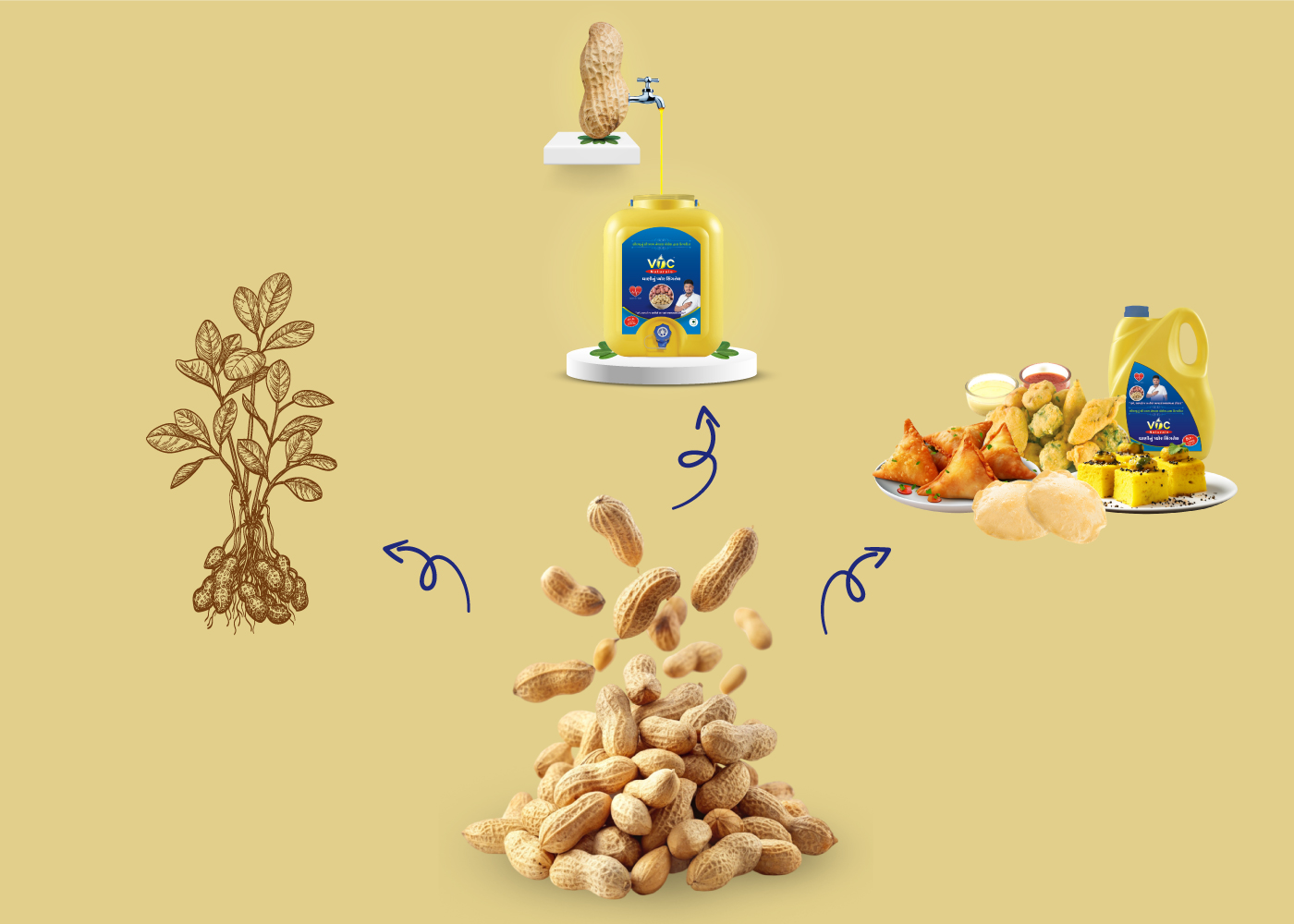
Farming
This step involves the cultivation of the plants that produce the seeds or fruits used for oil extraction. Sustainable farming practices can enhance the quality and yield of oil.
⟶
Cleaning
The raw materials (seeds, nuts, or fruits) are cleaned to remove dirt, debris, and any foreign materials. This step is crucial to ensure the quality of the oil.
⟶
De-hulling
In some processes, especially for seeds, the outer hull or shell is removed to improve the extraction efficiency and oil yield.
⟶
Purely Pressed
This refers to the extraction method where the cleaned seeds or fruits are mechanically pressed to extract oil. This can be done through cold pressing or hot pressing.
⟶
Filtering in Clothes
The extracted oil may go through a filtering process, often using cloth, to remove any solid residues or impurities, resulting in a clearer oil.
⟶
Packing
After extraction, the oil is packaged for storage or distribution. Proper packing helps maintain the quality and prevents contamination.
⟶
Deliver
Finally, the packaged oil is delivered to consumers or retailers for sale.
⟶
The Farms and Factory: A Commitment to Quality
Exceptional oils start with exceptional farming. Our farmers are carefully chosen and trained to practice environment-friendly techniques, ensuring that every product is cultivated with care and responsibility. From chemical-free soil to hand-picked grains, everything is naturally farmed to deliver the highest quality. Soil quality, cropping patterns, crop rotation, and nutrient levels are meticulously checked, while the chosen regions provide the perfect weather and temperature for optimal growth. The farming practices include soil fertility management, seed collection, biodiversity conservation, composting, water management, and crop protection. These regenerative methods are efficient and sustainable, ensuring consistent quality while nurturing the environment.
